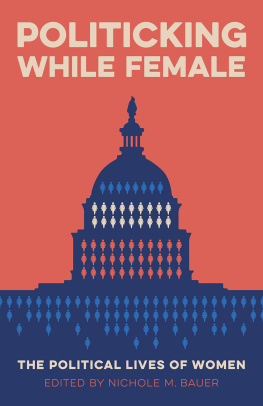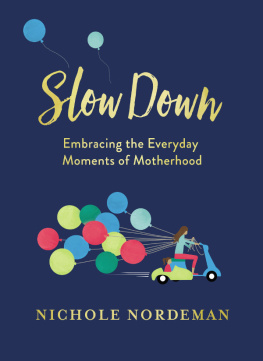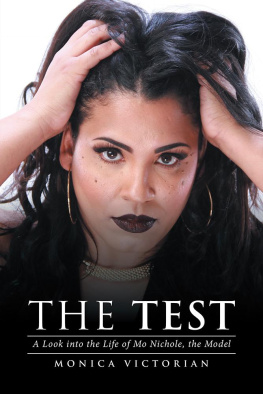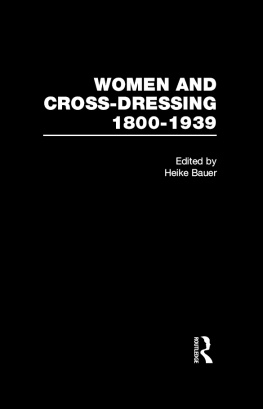POLITICKING
WHILE FEMALE
Media and Public Affairs
ROBERT MANN, SERIES EDITOR
POLITICKING
WHILE FEMALE
THE POLITICAL LIVES OF WOMEN
EDITED BY NICHOLE M. BAUER

LOUISIANA STATE UNIVERSITY PRESS
BATON ROUGE
Published by Louisiana State University Press
www.lsupress.org
Copyright 2020 by Louisiana State University Press
All rights reserved. Except in the case of brief quotations used in articles or reviews, no part of this publication may be reproduced or transmitted in any format or by any means without written permission of Louisiana State University Press.
LSU Press Paperback Original
DESIGNER: Michelle A. Neustrom
TYPEFACE: Minion Pro
LIBRARY OF CONGRESS CATALOGING-IN-PUBLICATION DATA
Names: Bauer, Nichole M., editor.
Title: Politicking while female : the political lives of women / edited by Nichole M. Bauer.
Description: Baton Rouge : Louisiana State University Press, 2020. | Series: Media and public affairs | Includes bibliographical references and index.
Identifiers: LCCN 2020016976 (print) | LCCN 2020016977 (ebook) | ISBN 978-0-8071-7291-9 (paperback) | ISBN 978-0-8071-7458-6 (pdf) | ISBN 978-0-8071-7459-3 (epub)
Subjects: LCSH: Women political candidatesUnited States. | Women politiciansUnited States. | WomenPolitical activityUnited States. | Political campaignsSocial aspectsUnited States.
Classification: LCC HQ1236.5.U6 P657 2020 (print) | LCC HQ1236.5.U6 (ebook) | DDC 320.082dc23
LC record available at https://lccn.loc.gov/2020016976
LC ebook record available at https://lccn.loc.gov/2020016977
CONTENTS
NICHOLE M. BAUER
MARY-KATE LIZOTTE
MONICA C. SCHNEIDER AND MIRYA R. HOLMAN
DANIELLE CASAREZ LEMI
ROSALYN COOPERMAN
SYLVIA I. GONZALEZ AND NICHOLE M. BAUER
TESSA DITONTO AND DAVID J. ANDERSEN
JENNIE SWEET-CUSHMAN
ANNA MITCHELL MAHONEY, MEGHAN KEARNEY, AND CARLY MEGAN SHAFFER
ACKNOWLEDGMENTS
A n edited volume is always a collaborative achievement, and this volume is no exception. Jene Slocum originally developed the idea of creating an edited volume of original academic scholarship based on the 2019 John Breaux Symposium, an annual gathering sponsored by the Reilly Center for Media and Public Affairs at LSU. When Jene came to me with the idea in the summer of 2018, I was more than a little skeptical that I would be able to pull together this project; but Jene did not waver in her confidence that I could helm the project. Im indebted to Jene for her original inspiration for this project and for her support. More broadly, in her role as the director of the Reilly Center, Jene has made a strategic choice to highlight research on diversity, gender, race, and representation in the centers programming. I know from my experiences at other institutions that research on these topics is often marginalized if not outright overlooked. The support of Jene and the Reilly Center for the research conducted in this volume, and a variety of programs on women and politics, is truly invaluable. Every scholar should be so lucky as to have someone like Jene Slocum supporting their intellectual pursuits.
This edited volume is the first such compilation I have spearheaded. Fortunately, I had an experienced and patient colleague, Josh Grimm, to answer many of my nitpicky and anxiety-ridden questions about how to do this gig. Josh always offered thoughtful advice I almost always took. His sage wisdom and unwavering support was a confidence booster, and helped me move this project to completion.
Im also grateful to my colleagues at LSUs Manship School of Mass Communication and at LSU Press, especially Bob Mann, who edits the Media and Public Affairs series of which this book is a part. Bob was enthusiastic about the project when he first reviewed the proposal, and helped shepherd the project through the review process. I also appreciate the support and guidance of James Long and the rest of the team at LSU Press. Everyone at the press worked exceptionally hard to ensure a smooth and transparent publication process.
All the contributors to this project participated in the daylong Breaux Symposium. The symposium featured dozens of lawmakers, political practitioners, and academic researchers who came together to discuss women in politics with hundreds of students and community members throughout the day. The engagement of these stakeholders led to rich and robust discussion about the status of women and politics. Im grateful to everyone who participated in the symposium for their thoughtful insights, pointed questions, and commitment to improving the status of women in politics every day.
My work on this project would not have been possible without the generous support of the Remal Das and Lachmi Devi Bhatia Memorial professorship. I would also like to thank Martin Johnson, the dean of the Manship School, who not only shows a strong commitment to supporting research on women and politics, but also gave me the time and space to complete this project in its final stages. Im incredibly lucky to have supportive colleagues in two departments, the Manship School of Mass Communication and the Department of Political Science, at LSU.
Finally, Id like to thank all the women who have run or are running for political office, especially the women who ran in 2018. Without women signing up to run for political office and challenging the patriarchal norms that guide who can (and cannot) participate in politics, this would be a very thin volume. I hope that more women continue to run for political office. While womens representation is at its highest level ever, there is so much more room to grow and enhance the diversity of voices represented in the political system.
POLITICKING
WHILE FEMALE
INTRODUCTION
NICHOLE M. BAUER
T he 2016 presidential election was a historic moment in American politics. A major political party for the first time nominated a woman to run at the top of a major party ticket for the presidency. Indeed, Hillary Clintons candidacy appeared to start a glass-shattering moment in American politics as she had the potential to become the first female president after forty-four male presidents. On Election Day, Clinton did not shatter the presidential glass ceiling. In fact, 2016 was a rare election cycle where women did not win any new seats in Congresswomens representation stagnated. Clintons presidential loss, coupled with the victory of a male opponent who expressed negative and, at times, openly hostile and misogynist views, spurred women to political action through protest, marches, and running for political office.
Immediately following Trumps presidential inauguration, women and male allies staged a Womens March to protest womens political, economic, and social marginalization. The protests included a broad swath of concerned individuals who came together in Washington, DC, in cities across the United States and around the globe (Berry and Chenoweth 2018). The gender revolution sparked by the outcome of the 2016 election did not end with the Womens March. The #MeToo movement began a few months later with high-profile men in business, journalism, and entertainment called to account for their years of mistreatment, harassment, and abuse of women in the workplace. And the movement spread to politics. By the end of the summer of 2018, multiple members of Congress resigned over reports of sexual harassment.















